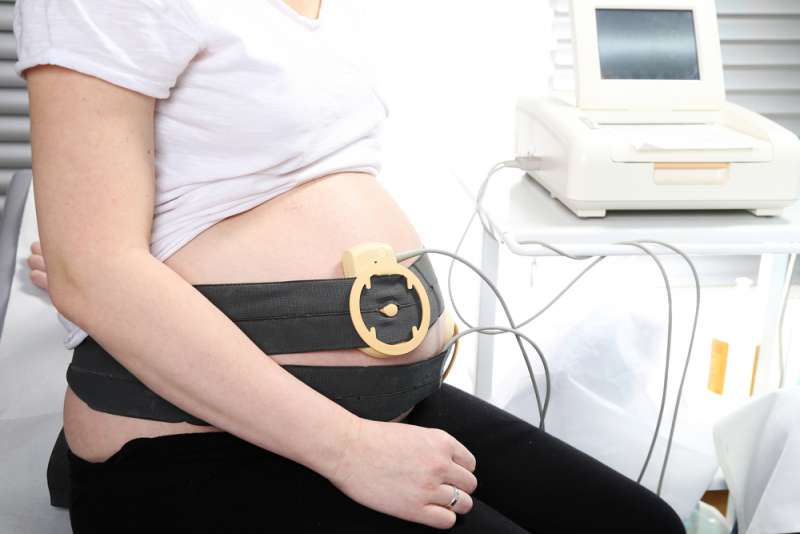What to Expect during Prenatal Care in Australia?

What is antenatal care?
Basically antenatal (or prenatal) care is the healthcare you receive in the lead up to and during the birth of your baby. It all starts as soon as you suspect you might be pregnant, when you should contact your GP to get confirmation and work out what your options are from there.
It will vary after that a little depending on if you are choosing a public hospital, a private hospital, a birthing centre or a home birth, but all of these options will include a series of appointments throughout the pregnancy to check on your health and the health and development of the baby.

What does it involve?
The first visit is at about 10 weeks, and then these are generally monthly, and will increase in frequency as your due date approaches or if you are considered to be at risk. Your healthcare professional will generally check your blood pressure, may weigh you, and will provide advice and answer any questions you have.
You will get lots of information about vitamins, eating and exercise and how basically to create the best possible oven to cook your little one in. You will also be told all the rules for things you are not allowed to do doing pregnancy, which is a really long list and impossible to cover here, but just trust your doctor on this, ok?
If you have concerns you should take these opportunities to voice them. Tell your doctor of any strange symptoms you may be having. Also confide in your doctor if you are in any kind of situation which could put you and your future baby in danger such as domestic abuse, financial risk or substance addiction.
These visits will also include:
- You will often get to hear the heartbeat of your baby or babies which is very exciting and I challenge you not to get a bit teary the first time this happens
- Ultrasounds at 12 weeks and 20 weeks as a minimum, more often if needed
- Finding out the gender of your baby if you so desire
- Prenatal testing to check for certain genetic conditions in the baby and health concerns of the mother such as gestational diabetes and preeclampsia
This is also time for you to meet and become comfortable with the different people who will be involved in the actual delivery. If you do not gel with or feel confident enough about your doctor to feel at ease throughout your pregnancy you, can also consider changing healthcare providers to one that you are happy with.

What to expect at each individual visit to the doctor during pregnancy?
As mentioned earlier, there are a few essential visits to the doctor during pregnancy; each visit tests for some specific health factors for you and your baby. To learn more about what to expect at each essential visit to the doctor during pregnancy, read here.
Do I have to do this antenatal care thing?
Well, yes.
The only reason why you should not have these appointments is if you have literally no knowledge at all that you are pregnant until your baby pops out. While this does happen from time to time, the vast majority of mothers will have some pre-warning thankfully, and you should absolutely attend all your appointments, do all the tests and get all the information you can through the available antenatal healthcare system.
Each pregnancy is individual, and even if you have had a baby before, you still have to go through every step of this again, no matter how much you think you know what’s going on.

How much time will it take? And what does it cost?
It does take quite a bit of time actually, as you can work out by adding up monthly appointments, plus ultrasounds, plus prenatal testing, plus increasing appointments as you get closer. Employers should give you this time as sick leave however as long as you have medical certificates, so you should still be getting paid and not feel guilty for this in any way.
Cost will vary; it will all be completely covered through Medicare if you go through the public system, and will be partly covered by Medicare if you go through the private system. If you go with private healthcare, your costs will also be partly covered by health insurance, then you will have to pay the rest yourself. How much you are out of pocket in the end depends on what your health insurance covers and how expensive your obstetrician is. Out of pocket expenses may total between $2000 and $8000, but will generally be payable across the nine months which helps.

Does my partner have to come?
This is a personal decision really. Some of the appointments, such as the first one and any ultrasounds are pretty exciting so your partner or any important support person may want to be there for that. Most of them are pretty boring and routine and you could probably let them skip a lot of the middle ones. However some couples want to go through every step together and that can be fantastic; it’s really a decision for the two of you.
Antenatal Classes
Antenatal classes are also highly recommended to be attended during pregnancy but they are optional to attend. To learn more about what to expect at Antenatal Classes, read here.

Conclusion
So antenatal care is a essential healthcare that you and your baby absolutely need. It is time consuming, but doesn’t have to be costly unless you choose for it to be. You should definitely not skip it because it’s time consuming, as this is the beginning of something called parenting which will pretty much consume all the time you have left in your life; you might as well give in to the inevitable now. Seriously though, your antenatal care is a vital part of your pregnancy, the health of you and your baby, and your general sense of calm and emotional wellbeing.


